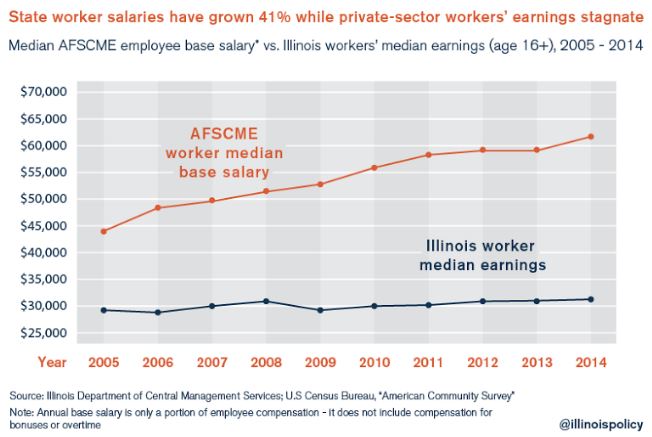Illinois state House Speaker Michael Madigan has been in charge of the Illinois House for over 33 years — here are Ted Dabrowski and John Klingner writing at the Illinois Policy Insitute:
Middle-class Illinoisans who aren’t employed by the government are suffering, but Illinois House Speaker Mike Madigan stands in the way of solutions.
Illinois House Speaker Mike Madigan claims to be the protector of the middle class.
Problem is, the speaker’s definition of “middle class” doesn’t resemble the true makeup of Illinois’ working families. For Madigan, “middle class” means “government workers,” and he prioritizes appeasing government workers over reducing the tax burden and increasing economic opportunities for all Illinoisans.
Just look at his track record. Madigan opposes the very reforms that would benefit Illinois’ middle class most: a property-tax freeze to provide relief from the third-highest property taxes in the nation, term limits for politicians, and economic policies that make the state more business-friendly and create more jobs.
Instead, Madigan wants billions of dollars in tax hikes to feed the state’s unsustainable government-worker pension system, which is $111 billion in debt.
But the best proof of Madigan’s true loyalties lies in his actions surrounding the state’s contract negotiations with the American Federation of State, County and Municipal Employees.
Madigan wants the private sector to pay for more than $3 billion in state-worker salary, health-insurance and pension benefits under the new AFSCME contract, even as Illinoisans suffer in a state with the nation’s second-worst jobs recovery. AFSCME’s leaders want four-year raises ranging from 11.5 to 29 percent, a 37.5-hour workweek, five weeks’ vacation and enhanced health care coverage – benefits that are far out of line with what Illinoisans working in the private sector can afford to pay for. Not to mention these additional benefits would come on top of the unsustainable salary growth AFSCME workers have already seen.
Read more: Illinois Policy Institute
Image credit: www.illinoispolicy.org.

